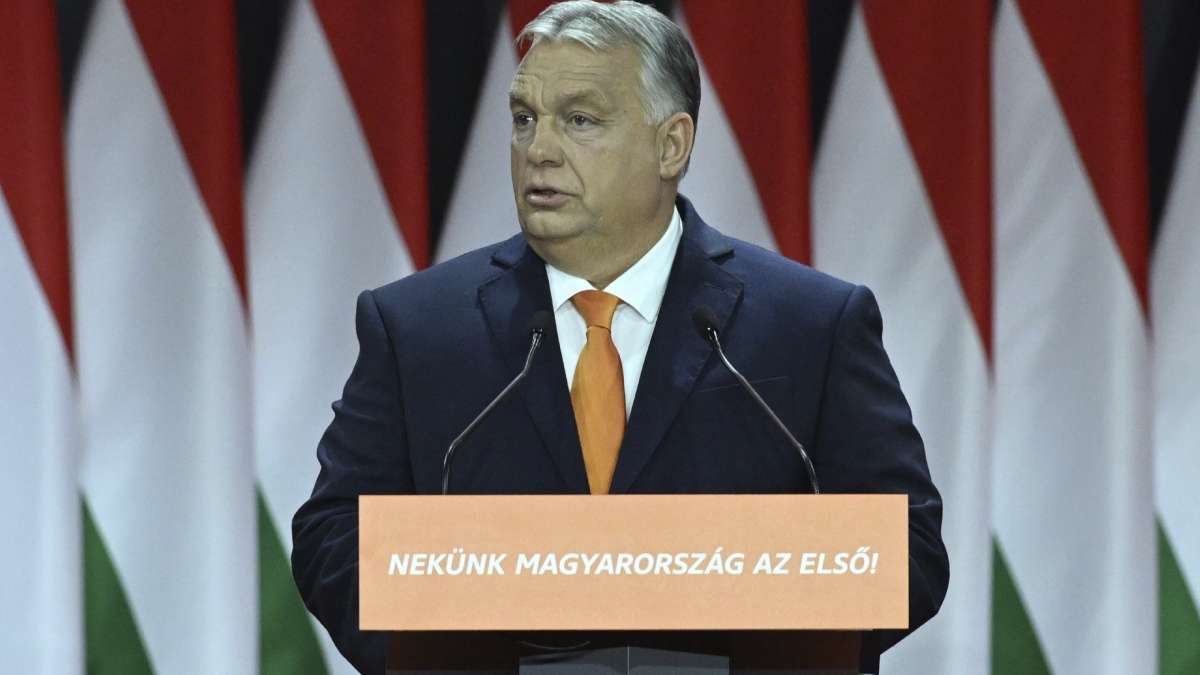
[ad_1]

Hungary’s Prime Minister Viktor Orbán, who is one of Russia’s only allies in the European Union (EU) on Saturday signalled that his government would stand against negotiations on Ukraine’s membership in the 27-member European bloc scheduled for mid-December.
Addressing a biannual congress of his nationalist Fidesz party, Orban said that he and his government would “resist” talks on whether to formally invite Ukraine to start membership negotiations.
“Our task will be to correct the mistaken promise to start negotiations with Ukraine, since Ukraine is now light years away from the European Union,” Orbán said. This comes as Orban was re-elected as the President of the Fidesz party for the 11th straight time since 2003.
Orban previously said that standing in the way of Ukraine joining the EU would be one of his government’s top priorities in the coming months. The Hungarian PM’s remarks come after the EU’s executive commission recommended accession talks with Ukraine, saying that Kyiv “has shown a remarkable level of institutional strength, determination and ability to function”.
How Orban’s stance can create problems for the EU?
However, admitting a new country requires unanimous approval from all existing member countries, giving Orbán a powerful veto. The Hungarian PM has argued that negotiations should not begin with a country that is at war, and that Ukraine’s membership would reorient the EU’s system of distributing funds to member countries.
“When I’m in the chamber, I don’t feel the insurmountable desire for the Hungarian parliament to vote for Ukraine’s membership of the European Union within two years. So I would be careful with these ambitious plans,” Orbán said earlier this year.
Orban has also threatened to block an EU plan to provide a four-year, 50 billion-euro (nearly $53 million) aid package to Ukraine. He has criticised Ukraine over what he says is the violation of the rights of ethnic Hungarians in western Ukraine to study in their own language.
In September, he told the Hungarian parliament that his government would “not support Ukraine on any international issue” until the language rights of the minority are restored. While he has admitted Ukrainian refugees and condemned Russia’s invasion, it has maintained close relations with Moscow and argued against supplying arms to Ukraine or providing it with economic assistance, which is unique among EU member countries.
Some critics have speculated that Hungary is using its resistance to leverage concessions concerning billions in funding that the EU has withheld from Budapest over concerns that the government has failed to uphold rule-of-law and human rights standards.
(with AP inputs)
[ad_2]
Source link